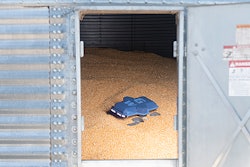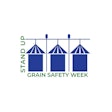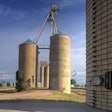
Studies have indicated that even moderate sleep deprivation can cause impairment equivalent to drinking a couple of beers.
During Monday's GEAPS Exchange education session, “Sleep is for the Weak and Other Lies We Tell Ourselves,” Dr. Kevin Moore, assistant professor of Occupational and Environmental Health Science at the University of Texas at Tyler, said everyone is tired.
- 70% of Americans report they routinely get insufficient sleep
- 30% of U.S. workers and 44% of night shift workers report less than six hours of sleep on average
- 90% of employers are impacted by tired employees
- Every year, the U.S. loses 1.23 million working days due to insufficient sleep as sleep-deprived workers are twice as likely to miss work
"Fatigue is a hazard that needs to be managed," says Moore. "Just like any other hazard you deal with at your workplace."
Weariness from physical or mental exertion leads to decreased attention to detail, impaired judgement, and slowed response time. It also impacts productivity, safety and overall health.
"Sleep is an essential function that allows your body and mind to recharge, leaving you refreshed and alert when you wake up," notes Moore.
"Most adults need seven to nine hours of good, quality sleep per night in order to be healthy and functioning at peak condition."
Sleep deprivation, which can occur when you're out of sync with your normal work schedule, can impact cognitive and physical performance.
"You might not feel sleepier, but performance will continue to degrade," says Moore.
Fatigue Risk Management System
Having sleep problems increases the relative risk of being injured at work by 1.62 times, says Moore.
"Approximately 13% of work injuries are due to sleep problems," he notes. "Non-standard shifts -- overtime, night shifts -- were found to have a higher risk for occupational injuries and illnesses than conventional day shifts. Working at least 12 hours per day was associated with 37% increased hazard rate."
Long shifts, like those employees face during peak harvest time, diminishes a worker's ability to remain focused and alert. In addition to reduced productivity, it's harder for employees to deal with stress and can impair motor skills, opening them up to more injuries.
Fatigue management is a shared responsibility between the company and the employee, says Moore.
"It's critical to engage workers in managing risk associated with fatigue," he says. "And like other safety topics, the support of management is critical to success."
Grain elevators should create a Fatigue Risk Management System that answers the following questions.
- Do we have enough personnel to support our workload in order to give adequate rest time for employees?
- Are there shift related issues that can be improved? Consider shift type, length, transitions. Do schedules permit opportunities to obtain nighttime sleep? Do we time breaks and meals to combat fatigue? Do we schedule critical tasks during peak times of alertness?
- How is our work environment? Light, temperature, humidity and ergonomics can all impact fatigue.
- Do we provide training and education for employees to create awareness of and help address sleep disorders?
- Can our employees recognize excessive fatigue? Establish a safety culture supportive of peer-to-peer engagements, so everyone has each other's backs.
Feeling tired is a common challenge. Unusual schedules, stress and working in hot environments only makes things worse.
Long work hours can increase our stress levels, contribute to weight gain and cause more frequent illness and on-the-job accidents that may even result in a fatality.
Both employees and managers need to work together to ensure every one is getting quality sleep and rest in order to decrease the impacts of fatigue in the workplace.
Dr. Kevin Moore, CSP is an assistant professor of Occupational and Environmental Health Science at the University of Texas at Tyler. He received his Ph.D. in Biosystems Engineering from Oklahoma State University. Dr. Moore is engaged in protecting worker health and safety, especially in the agriculture and construction industries. He is interested in the evaluation and assessment of workplace hazards, worker attitudes and behaviors concerning safety, respiratory protection, and grain handling safety.


















